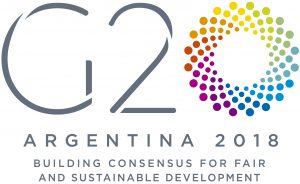
Now for a little catch up. So, on Labor Day, I thought it would be useful to ‘rev our summitry engines’. But the trend line, or lines, remain clear. First, Trump continues to dismantle various elements of the liberal international order. Here an acute perspective from Philip Stephens of the FT in the summer (August 2, 2018):
For all the present let’s-be-nice mood in the White House, Mr Trump is progressively dismantling the pillars of the US-led international order. One way or another the president has undermined the US commitments to climate change, nuclear non-proliferation, Nato, the EU and longstanding treaty relationships with Japan and South Korea. No one can be sure that tomorrow he will not tear up the North American Free Trade Agreement or pull US troops out of the Middle East. The credibility and trust on which US power was built is draining away. If the US does not respect an American-designed order why should anyone else?
Next, and equally a trend line – my call for summit leaders to ‘hunker down’ and play ‘small ball’ now. Why not big efforts to formulate and declare global governance initiatives in the face of the ‘Great Dismantler’. In the broad global governance picture preservation is critical. There is a limit I suspect to acting without the U.S. Undertaking ‘multilateralism without the United States’ is critical but ‘poking the bear’, or eagle possibly more appropriately, is probably unhelpful, unnecessary, even possibly counterproductive. Episodic multilateral efforts without the United States are emerging. CPTPP, or the TPP11, driven in particular by Prime Minister Abe is a singular example of this new multilateralism. Equally, German efforts at the Hamburg G20 Summit to maintain climate change efforts led to the end of absolute G20 consensus and a climate change statement in the Leaders’ Declaration of just the G19.
CFR President Richard Haass, earlier in the summer – reflecting more on geopolitical summitry, particularly Korea and Trump summitry more generally – but nevertheless with meaning for summitry overall, concluded in an article at Project Syndicate:
To be clear, the problem is not with summits per se. History shows they can defuse crises and produce agreements that increase cooperation and reduce the risk of confrontation. There is a danger, though, in expecting too much from summits, especially in the absence of sufficient preparation or follow-up. In such cases, summits merely increase the odds that diplomacy will fail, in the process contributing to geopolitical instability and uncertainty rather than mitigating it. At a time when the risks to global peace and prosperity are numerous enough, such outcomes are the last thing we need.
Now, I reflect favorably on these Haass conclusions in part as a result of circumstances that today face the host of the upcoming G20. It could not have been anticipated when Argentina pressed to take the hosting for the G20. Argentina I believe wanted to show that it was back and open for business. But since at least June Argentina is the midst of a dramatic financial crisis. Interest rates have been hiked to 60 percent and the finance minister Nicolas Dujovne has flown to Washington to accelerate the provision of a $US50 billion loan from the IMF – a politically very difficult step by the current Macri government. Distracted – you bet! So, it is not unreasonable to ‘hunker down’ smile and hopefully get through the late November meeting. ‘Small ball’ is definitely in order.
Image Credit: G20 Information Centre, University of Toronto – utoronto.ca

